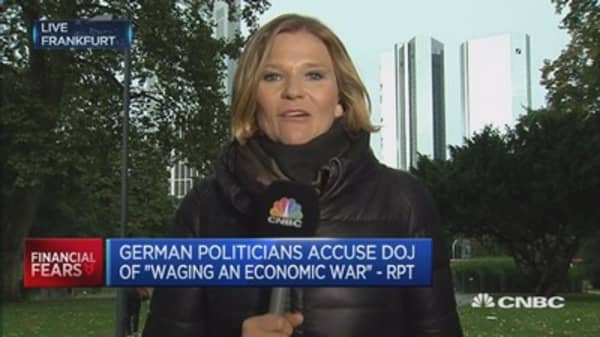Who'd invest in a German bank? A roller-coaster two weeks for Deutsche Bank, the country's largest lender by assets, has only reinforced the volatile position the sector now finds itself in.
It's highly likely that the top dogs at Deutsche will sweet-talk U.S. regulators into reducing their $14 billion settlement, but they are by no means out of the woods.
The bank's liquidity is in great shape, analysts keep telling me, with the European Central Bank ready to offer cheap loans and solve any short-term funding problem. But it's the perceived capital situation that worries many. This is the difference between the firm's assets and its liabilities and acts as a financial buffer to absorb unexpected losses.





